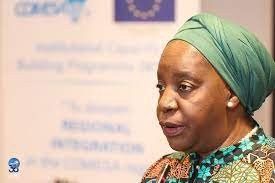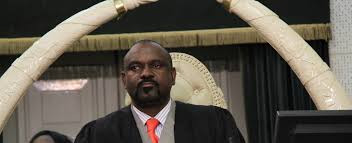THE Combined Harare Residents Association (CHRA) has petitioned Harare City Council (HCC) to terminate the dubious Pomona waste to energy deal.
Under the controversial deal, the local authority has already handed over the Pomona dumpsite for free to Georgenix. The local authority is mandated to pay US$22 000 per day in the first year, whether or not it deposits waste at the dumpsite.
The petition implored the HCC to exercise its constitutional mandate by:
- Rescinding a council resolution on the Pomona waste-to-energy project made during an ordinary council meeting of February 28, 2022 in terms of section 89(1)(a)(ii) of the Urban Councils Act by giving a notice of motion to rescind the resolution.
- Terminating the memorandum of agreement (MoA) between the City of Harare and Geogenix BV for the Pomona project.
- Setting up a special committee in terms of the Urban Councils Act, section 100 and conduct an investigation or inquiry to the Pomona agreement and present a report before the Zimbabwe Anti-Corruption Commission.
Private players that have been complementing the city’s efforts in refuse collection and waste management have suspended operations due to the unsustainable US$40 per tonne charged by Geogenix after taking over Pomona dumpsite last month.
The termination of the agreement feeds into the City of Harare strategic plan (2021-2025) strategic pillar “Stop the Bleeding” and contribute towards Harare achieving its worldclass status.
Meanwhile, the Constitution in section 298(1)(d) calls for public institutions, including local authorities to ensure that public funds are expended transparently, prudently, economically and effectively.
Keep Reading
- Chamisa under fire over US$120K donation
- Mavhunga puts DeMbare into Chibuku quarterfinals
- Pension funds bet on Cabora Bassa oilfields
- Councils defy govt fire tender directive
Meanwhile, section 308(3) of the Constitution gives duty of every person who has custody or control of public property to safeguard it and ensure that it is not lost, destroyed, damaged, misapplied or misused.
CHRA believes that the agreement will sink the already financially distressed local authority into a serious and unsustainable debt, leading to total collapse of service provision.-CHRA
ED must walk the talk on diaspora voteON September 25, 2018, President Emmerson Mnangagwa addressed Zimbabweans based in the United States on the sidelines of the United Nations General Assembly and promised that government was working on mechanisms to ensure that they can vote from their domiciled countries in the 2023 elections.
It is not publicly known what preparations have been made so far following the announcements by President Mnangagwa, apart from the fact that in 2019 Justice minister Ziyambi Ziyambi reported that an international study was to be commissioned to determine whether Zimbabweans could vote from abroad in future elections.
But the latest statement on the diaspora vote has attracted brickbats from colleagues within Zanu PF.
The Speaker of National Assembly, Jacob Mudenda told parliamentarians at a workshop on electoral reforms organised by the Zimbabwe Electoral Network that the Electoral Act and the Constitution needed to be amended to allow the diaspora vote.
Some Zanu PF parliamentarians are up in arms over Mudenda’s atterances which were inicidentally merely repeating Mnangagwa’s promise to citizens living abroad.
One then questions the sincerity of President and Justice minister Ziyambi Ziyambi in their pronouncement about the diaspora vote.
Were they grandstanding to mislead the international community that Zimbabwe was a constitutional democracy? It sounds like they were. But why did presidential spokesperson George Charamba and the Zanu PF officials who threatened Mudenda not equally attack Mnangagwa and Ziyambi who announced plans to provide for the diaspora vote before Mudenda? Is it because he comes from Matabeleland?
Mudenda should not be intimidated by the evil intentions of Charamba and some misguided Zanu PF officials. He must do whatever he can in his capacity as Speaker to ensure that diasporans are accorded their right to vote. We are with you all the way, Advocate Mudenda.
I call upon the Southern African Development Community, the African Union and the United Nations to seriously consider advising the Zimbabwe government to take the diaspora vote seriously.
Other African countries are allowing their citizens living abroad to vote and Zimbabweans living abroad deserve the same. Zimbabweans in the Diaspora are encouraged to demand their right to vote.-Kennedy Kaitano
Africa needs rethink on cannabisTHE story titled Cannabis policy changes in Africa are welcome in NewsDay of June 1 refers.
I recall the then United States President Bill Clinton deciding against fully legalising (that is on a federal level) cannabis consumption after having championed it (or, at the very least, its decriminalisation) prior to his election.
Much worse, as President, he greatly ramped up the “war on drugs” — including against personal users, which needlessly and unjustly destroyed lives — at the very same time he made it easier for bankers to become richer. And yet he probably sleeps well at night, nonetheless. I definitely could not.
Cannabis products are known to be a healthier alternative to tranquilisers and, therefore, a potential threat to pharmaceutical industry profits.
Other than pander to big pharmacies, there is no good reason — morally, ethically or national interest — to maintain THC consumption’s criminal status.
Africa needs a rethink on its position on cannabis.-Frank Sterle Jr





